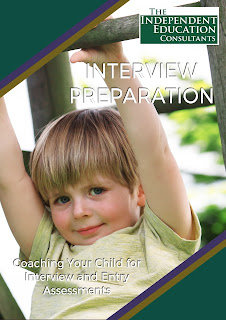The holidays are coming up fast, and
schools will soon be on their Christmas breaks. Even though many students have holiday
work to complete – especially those with revision to do for spring exams -
education can often take a back seat to make way for celebrations, friends and
family. And those things are, of course, very important. But so is keeping
young brains active and learning during the holidays. The best way to do this
is to encourage them to read at every opportunity.
Reading is one of the simplest
pleasures. 21st Century children are surrounded by technology –
games consoles, television, tablets, mobile phones. Whilst the latest tech is
sure to take pride of place at the top of your children’s Christmas wish list,
don’t forget to wrap a few books up under the tree this year.
The benefits of reading in extending
your child’s knowledge and understanding of literacy and vocabulary are
certainly proven. Not just for enjoyment, starting a life-long
relationship with books is crucial for stretching the imagination, developing
new interests and expanding knowledge. Instilling a wide vocabulary,
comprehension and accurate spelling skills are essential benefits of reading,
putting in place the foundations for success in education in the future. Not to
mention reading brings hours of entertainment – it’s learning, without your
children even noticing they’re doing it. It keeps their minds active and their
imaginations running riot; engross them in a good book and you’ll find them
desperate to sit quietly and get lost in those wonderful fictional worlds. Talk
to them about what they’re reading and you’ll be amazed at how they can chat
away like scholars about an amazing story.
Why not challenge your child to real
a certain number of books over Christmas too? Perhaps they can tackle a novel
longer than any they’ve read before, or try to read five or six short stories
from a collection whilst you’re preparing Christmas dinner.
During family time, ask your child
to read aloud to you. Share the reading with them – not just for the wonderful
experience of reading with your child, but also to teach listening and public
speaking skills. Discuss the meaning of words and their comprehension as you go
along. You may find they’re ready to read above the level you’ve been pitching
their book choices at.
Above all, it is important to make
reading fun and accessible. Books should be displayed all around your home –
the kitchen, bedrooms, living room, even the bathroom. Recent research has
actually linked the number of books in your home directly to academic
achievement (more on that here: https://psmag.com/books-in-the-home-are-strongly-linked-to-academic-achievement-832f3fbb56c8?gi=211b3bf8dc56)
so there are no excuses for not providing your children with as many books as
you can.
Give them something fun this
Christmas that also helps them learn. Books are a perfect Christmas present,
because you’re helping your children grow academically, as well as emotionally,
whilst also providing them long term entertainment to stimulate their minds in
a way no technology could.
Looking for ideas on what to give
them to read? We’ve got some recommendations below for children of all ages:
The Lion, The Witch and The Wardrobe
by C. S. Lewis
The Dark is Rising by Susan Cooper
Wind in the Willows by Kenneth
Graham
The Bear, The Snowman, both by
Raymond Briggs
End of Term by Antonia Forest
The Best Christmas Pageant Ever by
Barbara Robinson
Mog’s Christmas Calamity by Judith
Kerr
A Christmas Carol by Charles Dickens
The Children of Green Knowe by Lucy
Boston
Wolves of Willoughby Chase by Joan
Aiken
Skellig, The Fire Eaters, both by
David Almond
Coraline by Neil Gaiman
Inkheart by Cornelia Funke
Happy Hanukkah, Corduroy by Don
Freeman
The Tiger in the Well by Philip
Pullman
The Ghost of Thomas Kempe by
Penelope Lively
Shadow by Michael Morpurgo
Percy Jackson by Rick Riodan
The Berenstain Bears and the Joy of
Giving by Jan and Mike Berenstain
The Snow Goose by Paul Gallico
The Call of the Wild by Jack London
Howl’s Moving Castle by Diana
Wynne-Jones
Blitz Boys by Linda Newberry
Rubies in the Snow by Date Hubbard
Jane Eyre by Charlotte Bronte
Twas the Night Before Christmas by
Rachel Isadora
Young Bond by Charlie Higson
Cat Royal by Julia Golding
Dream Snow by Eric Carle
Lionboy by Zizou Corder
Fancy Nancy: Splendiferous Christmas
by Jane O’Connor
Artemis Fowl by Eoin Colfer
Good Omens by Neil Gaiman and Terry
Pratchett
Li’l Rabbit’s Kwanzaa by Donna L.
Washington
The Alchemist by H. P. Lovecraft
The Old Man and the Sea by Ernest
Hemingway
Forbidden Game by Malorie Blackman
Angel Pig and the Hidden Christmas
by Jan L. Waldron
How the Grinch Stole Christmas by
Dr. Seuss
The Princess Bride by William
Goldman
My True Love Game to Me by Stephanie
Perkins
Olivia Helps With Christmas by Ian
Falconer
Need childcare for the holidays and unsure about the options?
Our online store has guides on all areas of UK Education including financial aid, interview preparation and questions to ask on a school visit.
CLICK HERE TO SUBSCRIBE TO OUR MAILING LIST!
We offer a wide range of services and expert advice on your child's education.
Email claire@independenteducationconsultants.co.uk or contact Claire on 01865 522066 for an informal discussion on how we can help.
For more information visit www.independenteducationconsultants.co.uk
Email claire@independenteducationconsultants.co.uk or contact Claire on 01865 522066 for an informal discussion on how we can help.
For more information visit www.independenteducationconsultants.co.uk








